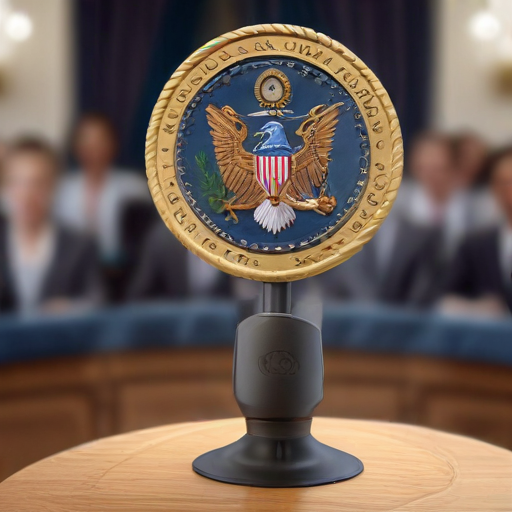The announcement by President-elect Donald Trump that he intends to nominate Kari Lake as the next director of the Voice of America (VOA), a U.S. government-funded international news outlet, is stirring significant concern among journalists and media professionals associated with the organization. In a recent social media post, Trump expressed his satisfaction with the choice, suggesting that Lake’s leadership would serve to promote American values globally.
VOA, which is overseen by the U.S. Agency for Global Media, has a long history of providing unbiased journalism and counteracting foreign propaganda, thus raising questions about the implications of Lake’s potential appointment. Lake, known for her previous media criticisms and election denials during her political campaigns in Arizona, may shift the network’s focus and mission.
Concerns stem from the legacy of Trump’s first term when his appointee, Michael Pack, faced backlash after attempting to exert control over the agency. His leadership resulted in significant unrest, leading to federal investigations and bipartisan reforms intended to shield the agency from political influence. A newly appointed VOA director must be confirmed by a majority vote from the International Broadcasting Advisory Board, which was established to maintain a degree of independence from government interference.
Current VOA director Michael Abramowitz, recognized for his commitment to objective journalism, indicated his willingness to cooperate with the incoming administration while expressing the importance of the agency’s mission to broadcast truthful information. While some supporters of Trump argue for necessary reforms in VOA, critics fear that Lake’s nomination signals a move towards using the outlet for personal political gain, compromising its integrity.
As Trump prepares to formalize his nomination for the head of the U.S. Agency for Global Media, attention turns to how this leadership change may influence the future of VOA. Although the current map of board appointments looks favorable for a Republican influence, several members remain insulated against political pressures.
The ongoing discourse highlights the critical role that independent journalism plays in a democracy, especially as readership and trust dynamics evolve in a highly polarized media landscape. It serves as a reminder of the continued need for vigilance in maintaining standards of impartiality and integrity within government-funded media platforms.
In summary, while the potential appointment of Kari Lake raises alarms regarding editorial independence at the Voice of America, it also underscores the resilience of America’s democratic principles, as various stakeholders strive to uphold the integrity and objective mission of the agency despite political challenges.
